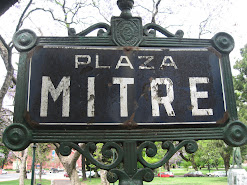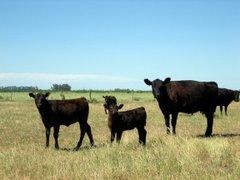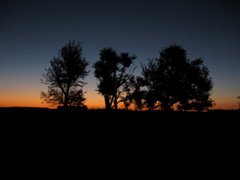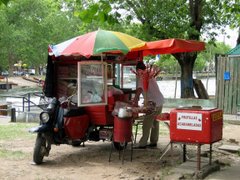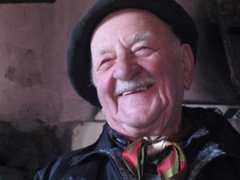Thirteen Moons is the story of the amazing life of William Cooper, a man who becomes a white chief of the Cherokees, a state senator, and a confederate colonel. He also overcomes a 6th grade education to become a self-taught lawyer and well-read linguist who teaches himself Cherokee and French. On the business side, Will pulls a double Algeresque rags-to-riches-to-rags- to-riches story thanks to investments in land, mercantile and railroads. And as a bonus, his and Bear's acquisition of hundreds of thousands of acres of tribal homeland allow their people to avoid removal to western reservations. Will travels extensively and meets the rich and famous, but never forgets Claire, the beautiful young girl who somehow belongs to his rival Feather- stone. Near the end of his amazing life and deteriorating mentally, Cooper enjoys passing time by firing a shotgun at his own trains as they roll through his front yard.
Will Cooper shares more than "some DNA" with William Holland Thomas, a 19th century Cherokee chief and Confederate officer. Both Wills are sent to work as trading post clerks in Indian territory, both are adopted by the local chief, and both are given law books in lieu of pay. Cooper and Thomas are both connected to President Taylor and both go to Washington to fight for the rights of their tribe. In the Civil War, both lead their legions in tricky maneuvers against union forces occupying a town in western North Carolina. Upon demanding surrender, both learn that the war had ended a month earlier at Appomattox. Each of them survive smallpox epidemics that devastate their people but end up suffering from what may have been Alzheimer's disease. The real William Holland Thomas, who led the Thomas Legion of Cherokee Indians and Highlanders, spent 20 years living in and out of mental hospitals and died in debt. While he is a very interesting character whose story deserves to be told, this project would have been better off in the hands of another writer. Frazier had much more success when working exclusively from his own imagination.
Some may say that the instant fame Charles Frazier achieved with Cold Mountain was a little too much to handle: they will point to the big award, movie, and advance for this second book. His fans will respond that there is a lot of jealousy out there, and that may well be true. I know a few people who would love to write a book like Cold Mountain and have friends over to watch Nicole Kidman star in the movie version.

























